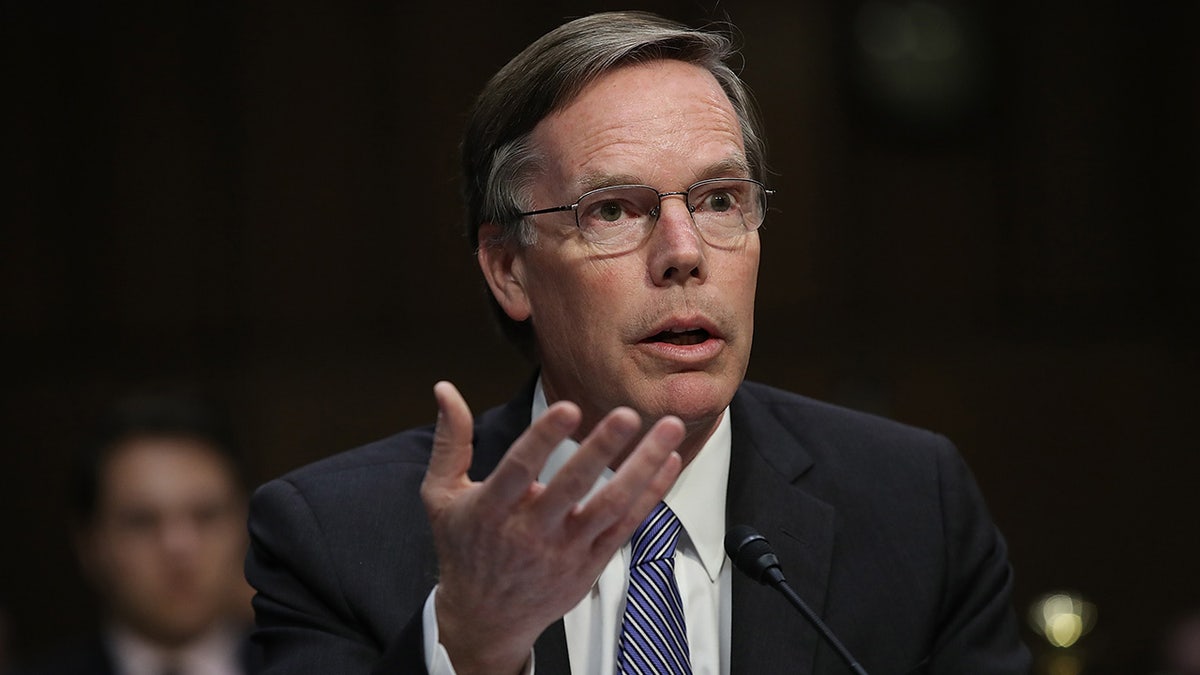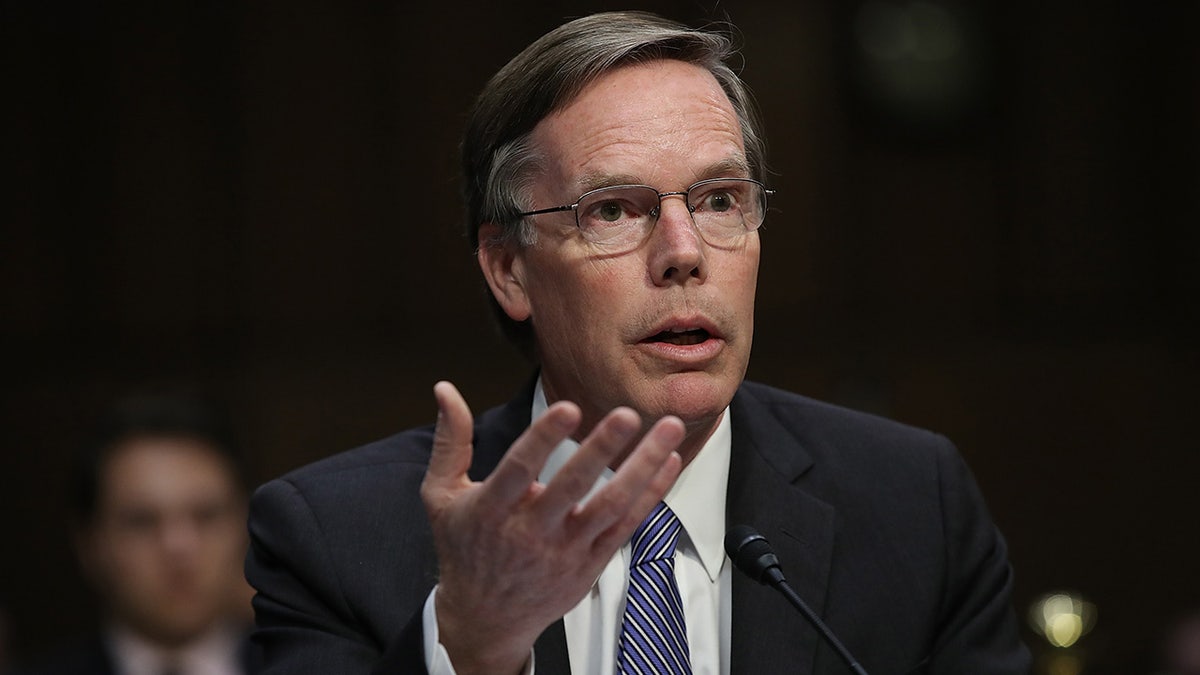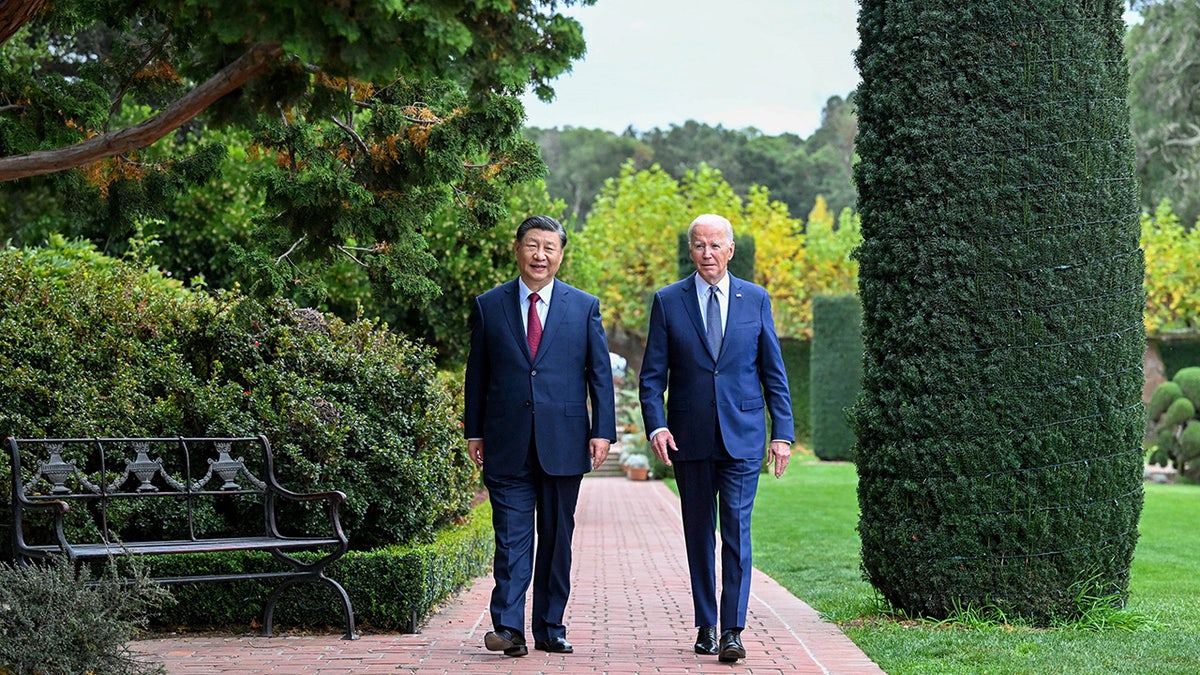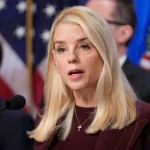
The U.S. ambassador to China on Friday said he isn’t “optimistic” about the future of U.S.-Chinese relations.
“I don’t feel optimistic about the future of U.S.-China relations. I feel that we need to see how things develop. We had a very good, productive meeting in California, can we now sustain that engagement? Can we sustain our commitments to each other,” Nicholas Burns explained in a Brookings Institution question and answer session, referring to President Biden’s meeting last month with Chinese President Xi Jinping at the Asia-Pacific Economic Cooperation forum in San Francisco.
He added that he’d lived through the “roller coaster” of China cutting off communications then reinstating them.
“So, I wouldn’t say I’m optimistic, I’m careful, maybe realistic,” he added. “Hopeful. But hopeful’s different than being optimistic.”

U.S. Ambassador to China Nicholas Burns said he isn’t optimistic about the future of U.S.-China relations. (Win McNamee/Getty Images)
Earlier at the event, Burns called China the United States’ most consequential relationship for the next couple of decades.
“We’re the two leading economies in the world and will be into the 2030s and 2040s,” he said. “We’re the two most powerful militaries in the world and certainly will be for the next two decades. We’re the two countries with the widest global reach if you think about the economic, societal, political, strategic breadth that most countries have and we’re vying for global power as well as regional power.”

President Biden had a meeting with Xi Jinping last month in San Francisco. ( Li Xueren/Xinhua via Getty Images)
Earlier this week, while speaking with the Council on Foreign Relations, Burns said, “We’re not in a state of good relations” but he said the administration been able to “reconnect the two governments.”
XI JINPING ARRIVES IN VIETNAM AS AS CHINA COURTS LEADERSHIP FOR ALLIANCE
Burns said Friday he believes there’s a “high degree of bipartisanship” among the left and right on the threat of China, who he said “wants to become the strongest power in the Indo-Pacific. I think that’s irrefutable. That’s their goal.”
While speaking with the Council on Foreign Relations this week, he said the administration had defended former House Speaker Nancy Pelosi’s decision to visit Taiwan in 2022. “We felt it was important that we defend her right as a co-equal head of a branch of the U.S. government, but that really sent – the aftermath sent the relationship [with China] into a tailspin.”
CLICK HERE TO GET THE FOX NEWS APP
He added that as of this spring and following the Chinese spy balloon incident in February, “we really had very few contacts of a senior nature between the United States and China.”








